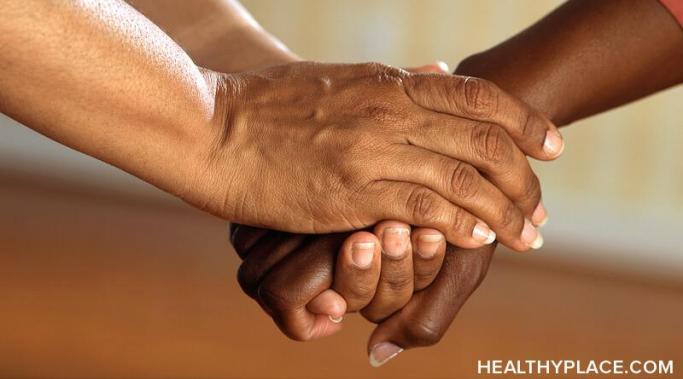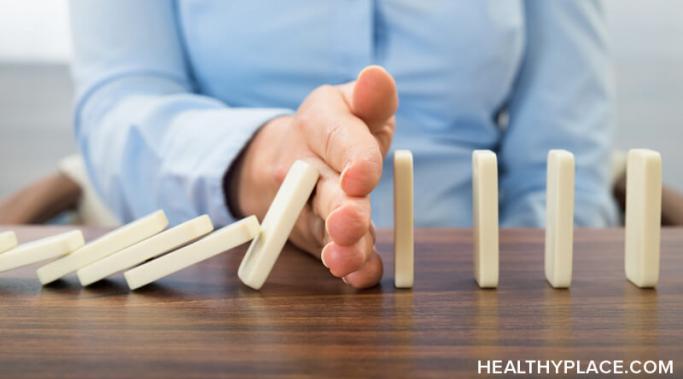Blogs
Verbal abuse can affect many areas of life, including your view of body image and diet. Because this abusive tactic targets your self-esteem, experiencing negative comments about your weight can directly impact how you manage food consumption. In short, verbal abuse can affect your diet choices.
Schizoaffective anxiety and recovering from surgery are a particularly bad combination. Yesterday, I was picking up some packages from the mail room. The mailroom is down a flight of stairs from our apartment. Only one package of four free COVID tests would fit in my tote bag, so I had to carry the other one by hand. I have a system for getting the mail on such occasions since I just had double knee surgery, and it’s hard for me to get up and down stairs. Schizoaffective anxiety in recovery makes it harder because I'm scared.
One of the most significant symptoms of anxiety that I have struggled with has been hypervigilance. Hypervigilance pertains to being on guard and alert for threats in the environment and may result in engaging in behavior with the purpose of preventing danger.1
For the longest time, I felt something was wrong with me for being an introvert. While most kids my age loved noisy parties and socializing, I preferred quiet one-on-one conversations and the company of books. In tenth grade, when an unimaginative bully called me "boring," I took her jibe to heart. It took me a couple of years to realize she was dead wrong. I am not boring; I am an introvert. And there is nothing wrong with being an introvert.
A few weeks ago, a friend asked me to edit an article that caused great stress and anxiety. I agreed to do this, not knowing how complex the text would be. After a few minutes, I stressed out about why I couldn't comprehend the content. My stress soon morphed into anxiety, pounding my head with thoughts like, "I'm so stupid, and If I can't edit this piece, my friend will be disappointed." I was tempted to give up and apologize to my friend. But before I did, I remembered that my stress and anxiety didn't have to consume me. To learn more about my experience with stress and anxiety and how I have learned to deal with them, continue reading this post.
I fell into habit tracking because in a world that is constantly changing, having clearly defined action steps is comforting. I’m able to trick my mind into creating a productive routine that feels more like a game than a chore. Sticking to healthy routines has a tremendously positive impact on my mental health, and it’s never been easier to do because I found a way that I enjoy. (Who doesn’t like the feeling of being able to check off boxes?)
In my life, embracing setbacks has been a recurring theme. Setbacks are the unexpected twists in my mental health journey. Embracing setbacks has been a transformative experience, prompting me to reconsider their nature and my response to them.
I know it can be hard to believe sometimes, but needing help with eating disorder (ED) recovery is not a sign of weakness. It's one of the bravest actions you can take. Internalized fears or anxieties might whisper in your ear that asking for help means you are a failure, a burden, or a lost cause. But I hope you can trust me on this: Those inner voices aren't telling you the truth. It's okay to need help with ED recovery.
In my own experience, healing is intensive, painful, and humbling work. No one I've met (including myself) has been able to successfully pursue it alone. So, if you could use an extra boost of care, support, advice, or encouragement, don't allow fear to intimidate you from reaching out. I promise needing help with ED recovery is not a sign of weakness.
When many people think of verbal abuse, they picture an angry person screaming insults or spewing vicious words, but passive aggressiveness can be verbally abusive, too. Verbal abuse doesn't have to include yelling or potential threats. Sometimes, passive-aggressive verbal abuse can be just as harmful.
Gambling fixation doesn't look the same for everyone. Very quickly into my gambling escapades, I realized that each person’s journey is unique, and this is determined by their motivations, vulnerabilities, and circumstances. Looking back at my own experience, I see that I became an interplay of personality traits. Through the winning, losing, and desperation phases of my journey, my emotional struggles, personality, and attraction to the allure of gambling unlocked in me the chaser, escape artist, risk taker, denier, and isolationist. These are types of gambling fixation.








